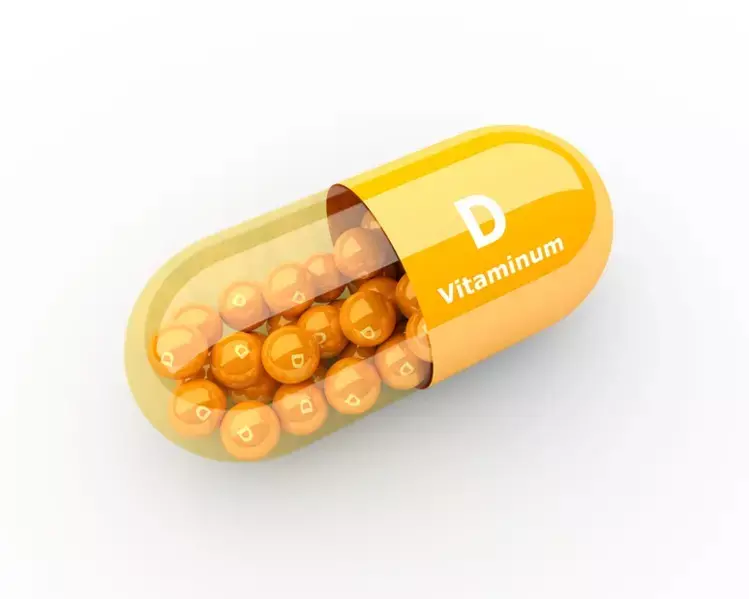- Home
- Medical news & Guidelines
- Anesthesiology
- Cardiology and CTVS
- Critical Care
- Dentistry
- Dermatology
- Diabetes and Endocrinology
- ENT
- Gastroenterology
- Medicine
- Nephrology
- Neurology
- Obstretics-Gynaecology
- Oncology
- Ophthalmology
- Orthopaedics
- Pediatrics-Neonatology
- Psychiatry
- Pulmonology
- Radiology
- Surgery
- Urology
- Laboratory Medicine
- Diet
- Nursing
- Paramedical
- Physiotherapy
- Health news
- Fact Check
- Bone Health Fact Check
- Brain Health Fact Check
- Cancer Related Fact Check
- Child Care Fact Check
- Dental and oral health fact check
- Diabetes and metabolic health fact check
- Diet and Nutrition Fact Check
- Eye and ENT Care Fact Check
- Fitness fact check
- Gut health fact check
- Heart health fact check
- Kidney health fact check
- Medical education fact check
- Men's health fact check
- Respiratory fact check
- Skin and hair care fact check
- Vaccine and Immunization fact check
- Women's health fact check
- AYUSH
- State News
- Andaman and Nicobar Islands
- Andhra Pradesh
- Arunachal Pradesh
- Assam
- Bihar
- Chandigarh
- Chattisgarh
- Dadra and Nagar Haveli
- Daman and Diu
- Delhi
- Goa
- Gujarat
- Haryana
- Himachal Pradesh
- Jammu & Kashmir
- Jharkhand
- Karnataka
- Kerala
- Ladakh
- Lakshadweep
- Madhya Pradesh
- Maharashtra
- Manipur
- Meghalaya
- Mizoram
- Nagaland
- Odisha
- Puducherry
- Punjab
- Rajasthan
- Sikkim
- Tamil Nadu
- Telangana
- Tripura
- Uttar Pradesh
- Uttrakhand
- West Bengal
- Medical Education
- Industry
Vitamin D supplements may reduce Severity of Atopic Dermatitis, finds study

Atopic dermatitis(AD) is a common dermatological condition affecting children as well as adults and it is having a negative impact on their quality of life. In a recent study, researchers have reported that vitamin D (VD) may be considered as a relevant adjuvant in reducing the severity of atopic dermatitis. The study findings were published in the journal Allergologia et Immunopatholgoia on March 01, 2021.
The exact pathogenesis of atopic dermatitis is not clear. Immune dysfunction plays a pivotal role in the causation of atopic dermatitis. Previous studies have recognized additional influences of vitamin D on immunity and atopic dermatitis. However, the influence of Vitamin D on the severity of the disease remains unclear. Therefore, researchers of the Federal University of Paraná, Brazil conducted a study to assess the influence of Vitamin D supplementation on the severity of AD.
It was a pre-post interventional study with prospective data collection in 152 patients younger than 14 years. Researchers determined the severity of AD through SCORAD (SCORing Atopic Dermatitis) and classified it as mild (SCORAD < 25), moderate (≥25 and <50), and severe (≥50). They performed a skin prick test in all patients. Serum VD levels were classified as sufficient (≥30 ng/mL), insufficient (29 to 21 ng/mL), and deficient (≤20 ng/mL); and those with inadequate levels received oral supplementation of VD for 3months and were reassessed after treatment.
Key findings of the study were:
• The researchers observed that patients with sufficient vitamin levels had lower SCORAD values.
• Among 152 patients, 116 patients (76.3%) received VD supplementation and, after 3months, they noted that the VD levels were significantly increased(35.9 ng/mL) compared to baseline levels (23.7 ng/mL).
• They also noted a reduction in the SCORAD index (19.4 before vs 12.3 after).
• Considering other factors that could influence the decrease in AD severity after VD supplementation, they reported that the female gender was associated with worse treatment response.
The authors concluded, "Vitamin D supplementation could be an adjuvant in reducing the severity of atopic dermatitis."
For further information:
Medical Dialogues Bureau consists of a team of passionate medical/scientific writers, led by doctors and healthcare researchers. Our team efforts to bring you updated and timely news about the important happenings of the medical and healthcare sector. Our editorial team can be reached at editorial@medicaldialogues.in.
Dr Kamal Kant Kohli-MBBS, DTCD- a chest specialist with more than 30 years of practice and a flair for writing clinical articles, Dr Kamal Kant Kohli joined Medical Dialogues as a Chief Editor of Medical News. Besides writing articles, as an editor, he proofreads and verifies all the medical content published on Medical Dialogues including those coming from journals, studies,medical conferences,guidelines etc. Email: drkohli@medicaldialogues.in. Contact no. 011-43720751


